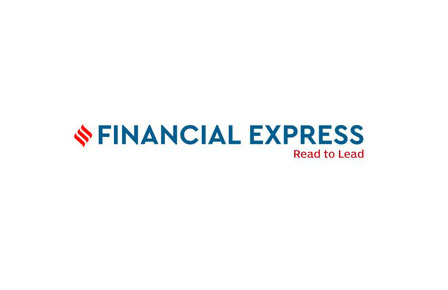The TReDS platform is an RBI-licensed marketplace that enables MSME sellers easy access to working capital by unlocking their approved receivables from buying entities such as corporates, PSUs, government departments

Started by the Reserve Bank of India (RBI) in 2014, the Trade Receivables Discounting System (TReDS) since its inception has aimed to facilitate the financing and discounting of trade receivables of micro, small and medium enterprises (MSMEs) through multiple financiers. However, time and again it has sparked discussions among industry leaders as several believe that this platform has failed to create meaningful volumes of invoice discounting.
Earlier experts told BW Businessworld that MSME suppliers’ identity is a major concern for big companies as they believe that their competitors will be able to find out from where they source their materials. Apart from that large corporations prioritise providing lengthier credit terms to their suppliers and will not recover receivables within 45 days.
“The potential risk for a buyer involves ensuring sufficient funds in their account on the due date so that the auto-debit does not fail. In the scenario of auto-debit failure, there may be a reporting of delay in payment to CRILC. From the financiers’ standpoint, they are exposed to the credit risk of the buyer in case the buyer does not pay on time or defaults,” said Amit Sachdev, Chief Operating Officer (COO), M1xchange, one of the three RBI licensed TReDS platforms. Edited Excerpts:
What are the key features and objectives of the Trade Receivables Discounting System (TReDS) platform and how does it benefit MSMEs?
TReDS enables MSME sellers to benefit from efficient price discovery for discounting of these receivables. This price discovery is done through a competitive bidding mechanism on the platform involving over 60 financial institutions in India. This bidding is allowed only after the invoices are approved by respective buyers after due checks of quantity and quality. The limits offered for invoice discounting on TReDS are collateral-free and hence offer financial security.
M1xchange TReDS offers a 100 per cent digital journey to buyers, sellers and financiers for onboarding and invoice discounting. Furthermore, it is a transformative platform that significantly enhances transparency in financial transactions, helping these enterprises thrive in a competitive business landscape. M1xchange has over 1,400 corporates, 25,000 MSME sellers and 60 financiers registered on the platform.
India’s MSMEs often face debt and delayed payment issues. How does the TReDS platform address the issue of delayed payments and working capital constraints for MSMEs?
The TReDS platform provides a lifeline to India’s cash-strapped MSMEs, offering a solution to their persistent issue of delayed payments. Since its inception, TReDS has facilitated over Rs 2,00,000 crore in transactions, significantly easing the fund flow for MSMEs. Since financial institutions bid on buyer-approved invoices after quantity and quality checks, the risk is predicated on the balance sheet strength of the buyer which in most cases is a well-rated corporate or government entity.
Hence, the interest rates involved in TReDS are in the range of 7-11 per cent per annum (PA) as against 16-18 per cent pa interest rates involved in unsecured lending. The government’s support, awareness, and integration with initiatives like GST, GeM and Udyam are further enhancing its impact on India’s MSME sector.
Can you explain the process of invoice discounting through TReDS and how it differs from traditional financing methods? How are MSMEs, corporations and financiers benefiting from M1xchange?
Traditionally, an MSME seller in need of working capital can potentially access funds from the banking sector using traditional working capital facilities. These facilities are general-purpose credit lines and are mostly secured by hard collateral such as land property etc. Unsecured facilities are scarcely available and at high rates of over 16 per cent PA.
MSME sellers can also utilise vendor finance facilities offered by banks. However, each of these traditional products entails separate bilateral documentation between the seller and respective financier. All these facilities are treated as borrowings in the books of the MSME seller.
MSME sellers can avail limits from 60 banks and NBFCs with one-time documentation and KYC done with M1xchange TReDS.
An MSME can get onboarded on the M1xchange TReDS platform anywhere between 30 minutes to 2 days with a fully digital onboarding process. In most cases, approved invoices are directly fetched from the corporate buyer’s ERP on which potentially 60 financiers bid against each other for every invoice. The lowest bid is approved by the seller or the buyer depending on who is bearing interest. The settlement process is facilitated completely by TReDS via NACH from all involved parties. Importantly, MSME vendors get paid within 24 hours of bid acceptance.
While for MSMEs the benefits are clear, financiers also benefit by participating in TReDS due to its almost-zero opex-based process and ensuring their PSL (priority sector lending) targets are easily fulfilled. Since TReDS handles KYC, contracting and settlements for all participants, the financier’s role is largely limited to assigning limits and placing bids.
For corporate buyers, a significant number of corporates leverage the low rates on TReDS to extend their days payable and conserve working capital. In addition, for corporates not extending and passing on the full benefit of the rates to their MSME vendors, they ensure a robust supply chain with a much lower cost of finance which overall enables efficiency and reliability in their supply chain.
What are some of the challenges and potential risks associated with using TReDS, and how can they be mitigated?
The discounting done on TReDS is without recourse to the MSME seller and hence there are no risks associated with an MSME using TReDS. The potential risk for a buyer involves ensuring sufficient funds in their account on the due date so that the auto-debit does not fail. In the scenario of auto-debit failure, there may be a reporting of delay in payment to CRILC. From the financiers’ standpoint, they are exposed to the credit risk of the buyer in case the buyer does not pay on time or defaults.
In order to mitigate these risks, a NACH mandate is collected by the buyer and sufficient reminders are sent prior to actual payment debit to ensure non-intentional delays are minimised. Further for the bank, all financial documents and rating rationale are provided by TReDS to the financiers to assess risk adequately. As per the recent guidelines, financiers can also avail trade credit insurance in cases where they feel the need to protect themselves prior to allocating funds for buyers.
M1xchange has enabled the facility to avail and transact using trade credit insurance on its digital discounting platform for all participants including the insurance company.
Could you discuss any recent developments or updates related to the TReDS platform, and how they impact the MSMEs and trade finance landscape in India? How is your company leveraging technology to provide MSMEs with the required finances?
Earlier this year, the RBI permitted insurance companies to come onto TReDS. This along with permitting a wider pool of financiers, has significant implications for MSMEs and the trade finance landscape in India.
These changes enhance the accessibility and security of trade receivables financing, making it more attractive for businesses, especially those with lower credit ratings. Insurance participation mitigates default risks, providing a safety net for financiers. Additionally, enabling secondary market operations promotes liquidity and allows financiers to recycle capital more efficiently.
How can authorities strengthen TReDS by integrating GST data?
By linking transactional data from the Goods and Services Tax (GST) system, authorities can provide TReDS participants with insights into the creditworthiness and financial health of businesses. This integration will also ensure that e-invoices raised by MSMEs on GSTN can come directly to the TReDS portal, thus negating the need for uploading PDF copies to validate the authenticity of the invoice.
This data integration can further streamline the credit assessment process, reducing risk for financiers and encouraging them to finance a broader range of MSMEs – especially with respect to the MSME-MSME Factoring product. It can also lead to more accurate credit scoring, quicker approvals and competitive interest rates, ultimately making TReDS a more attractive financing option.
Furthermore, getting access to continuous monitoring of GST filing data can also act as an early warning signal for financiers to predict potential defaults– and mitigate their risk effectively.
M1xchange has signed an agreement with the Haryana government, to provide invoice discounting services and easy financial access to MSMEs working for various government departments and PSUs of the state. How is your company planning to take this forward?
M1xchange’s collaboration with the Haryana government to offer invoice discounting and financial access to MSMEs marks a significant step in empowering the sector. To advance this partnership, it plans to streamline and expedite the invoice discounting process, ensuring MSMEs receive early payments from government entities for their services.
M1xchange will leverage its advanced digital platform supported with seamless end-to-end integration with Haryana government entities’ ERPs/ core systems, making the onboarding, factoring and settlement processes seamless and efficient. Our goal is to provide MSMEs with working capital without the burden of collateral, making it more accessible and cost-effective.



